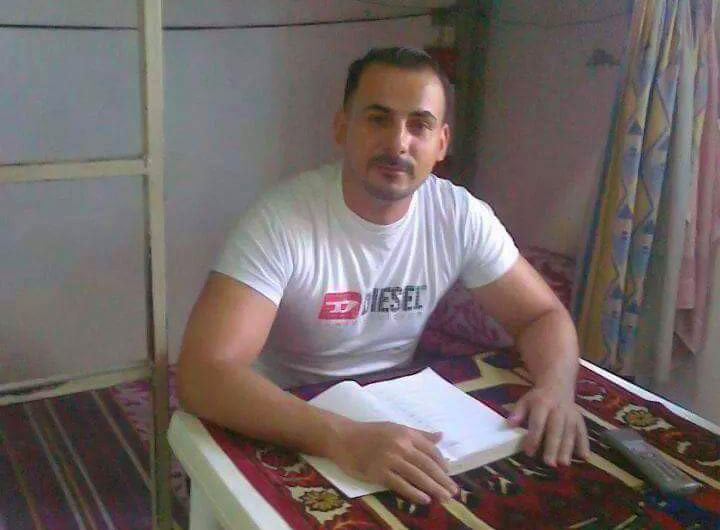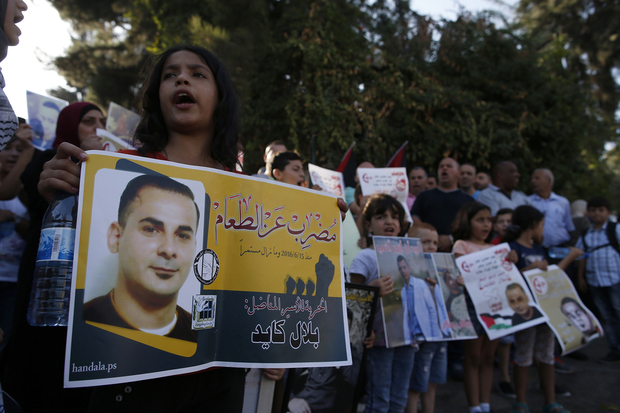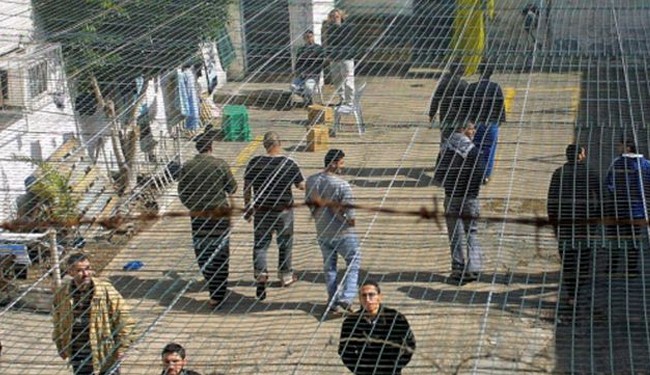Alwaght- The United Nations has pushed Israeli regime for deciding the fate of prisoners who were held under administrative detention without trial or charge, after some 400 Palestinian prisoners launched hunger strikes to protest the internationally-condemned system.
Administrative detention is a sort of imprisonment without trial or charge that allows the Tel Aviv regime to incarcerate Palestinians for up to six months, extendable indefinitely.
UN Coordinator for Humanitarian Aid and Development Activities in the Occupied Palestinian Territory Robert Piper urged, in a statement released on Saturday, said he was “deeply concerned about the deteriorating health” of Bilal Kayed, who went on an open-ended hunger strike 67 days ago to express dissatisfaction with his administrative detention.

Bilal Kayed who was arrested in 2002 and spent 14 and half years in Israeli jails
The 35-year-old inmate, a member of the Popular Front for the Liberation of Palestine (PFLP), was arrested in 2002 and spent 14 and a half years in Israeli jails.
On June 13, the day Kayed was scheduled to be freed, the Tel Aviv regime decided to extend his imprisonment term for another six months under the controversial administrative detention policy, which allows Tel Aviv regime to hold people who have committed no offences, or whose sentences have already been served.
Consequently, the Palestinian man went on a hunger strike to denounce his arbitrary detention.
"This is an egregious case, in which Mr. Kayed was placed on administrative detention on the day of his scheduled release after completing a 14.5 year prison sentence,” UN's Piper said.
Palestinian news agency cited Palestinian Prisoner’s Society (PPS) as saying on 4 August that at least 405 Palestinians in Israeli regime prisons went on hunger strike in solidarity with Kayed.
Kayid is suffering from failing kidneys and has lost at least 30kg, Palestinian officials say.

Palestinians demonstrate in support of Bilal Kayed
The UN Coordinator also said "The number of administrative detainees is at an eight-year high. I reiterate the United Nations long-standing position that all administrative detainees -- Palestinian or Israeli -- should be charged or released without delay”.
More than 7,000 Palestinian prisoners are currently held in some 17 Israeli jails, many of them arbitrarily.
The occupied Palestinian lands have been the scene of heightened tensions since August 2015, when Tel Aviv imposed restrictions on the entry of Palestinian worshipers into the al-Aqsa Mosque compound in an alleged bid to change the status quo of the Muslim site.
Over 230 Palestinians, including children and women, have lost their lives at the hands of Israeli forces in what is regarded as the third Palestinian Intifada (uprising) since the beginning of last October.



























